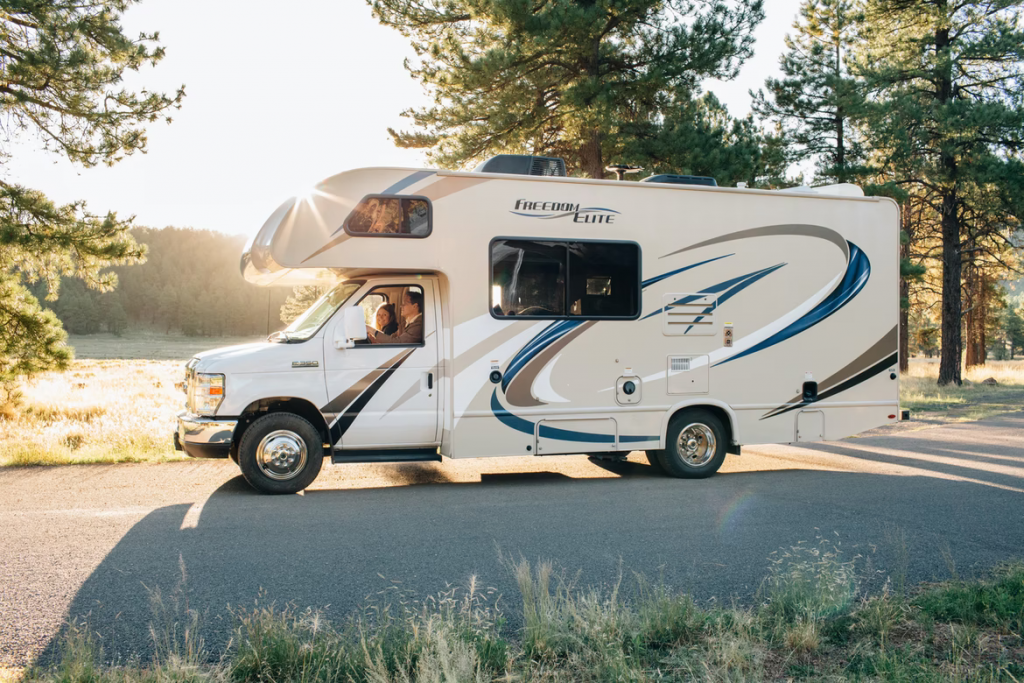
Things to Consider Before Buying a New RV
The decision to purchase an RV may have different reasons behind it. You may need a vehicle to travel once in a while to a national park or another camping place, attend a drive-in concert, or even live in your RV full-time. Furthermore, you should consider many other factors like the needs of other people who will be using the RV with you, safety and comfort, and so on. Budget planning is also important. For example, you can spend on the best RV toilet and ensure comfort while cutting expenses on a bunk bed, kitchen equipment, etc.
Find out the basic things you should consider before exchanging money for the keys to your new RV.
Safety
This crucial factor is usually overlooked, especially when purchasing a new vehicle. However, the warranty won’t save your vacation if you find out that the roof is leaking or the electricity is not properly isolated. Inspect the vehicle closely, look at the seams, knock on the roof and walls, check the electricity tumblers, and inspect the sewage communications. Inquire with the dealer or seller about water maintenance and replenishment, sewage discharge, and connection to electrical outlets.
Pay attention to the vehicle’s engine and transmission, as well as its chassis and brakes. If you’ve never driven an RV before, you’ll most likely need some time to get used to it and, depending on the type of RV you’ve chosen, you may need to take some lessons. There’s also the difference between driving an empty RV and one loaded with furniture and camping gear. Learn about the braking path and distance, safe parking (it’s better to avoid even small hills), and the connection between vehicle maneuverability and carried weight. Check if your RV meets the emission limits and if it can be used in the area you intend to visit. Some parks have weight, height, and vehicle type restrictions, so it’s best to check ahead of time.
Time Period During Which You Will Use Your RV
The amount of time you’re planning to use your RV is crucial. You can cut your expenses buying a vehicle without a shower or an AC system if you plan just an occasional short trip. You won’t also need a bed in this case. However, if you are planning a long trip, it is important to have the comforts of home.
The following elements are essential for full-time living or long camping trips:
- a separate sleeping place for each traveler
- a comfortable toilet (consider the age and height of each traveler)
- a shower or a bath
- AC or heating depending on the climate
- kitchen appliances
- alternator to recharge the batteries
These are basic items, but you will undoubtedly require more for your camping trip. Check the tips for campers and get prepared for your next adventure!
Storage and Living Space
If you’ve never taken an RV trip before, it’s difficult to predict how much space and storage you’ll require. For a full-time living in an RV, you’ll need to balance living space and storage, whereas for short trips, you can sacrifice one for the other. For example, if you are planning a trip with children, it is preferable to have more space inside your RV, even if the trip is open air. You’ll probably want your kids to spend time inside during rain and cold nights, and they’ll need space to play. For a fishing trip with adults only, you can sacrifice the space but take the necessary equipment: rods, stands, tents, cans with fish food, rubber boots, and so on.
The storage issue can be resolved by the amenities available in your van. For example, if you have a lot of batteries, you can save space by not bringing an alternator. You don’t need a portable shower for outside use if the RV has one. You don’t need to bring multiple bowls and water reservoirs to wash dishes outside if you have a kitchen.
Floor Plan and Usability
If the RV appears to be comfortable on paper, it may be less so in practice. The flipping beds can obstruct the passage, the space beneath the ceiling may be too narrow to accommodate your backpack, and the toilet may be too small for you with the door closed. So, once you’ve decided on a floor plan, go into the RV and test it out. Flip down the bed and sit on it. Stand at the kitchen sink and wash the imaginary dishes. Consider where you’ll keep your camping gear and the hooks that will keep your jacket in place.
If you plan to go on a trip with someone else, flip down all the beds and check if there’s enough space to use the toilet and sink. Invite others (a friend, a seller, etc.) to join you at the table or on the couch. Turn on the TV and check if it wouldn’t interfere with someone else’s occupations. It’s also worth checking if the TV can be seen and heard by everyone in the area.
Yuriy Moshes has spanned several areas of law but his expertise lies in litigation and real estate transactions. Over the years, he has assisted homeowners understand their options and either remain in their home or pursue possible liquidation options. He graduated from Brooklyn College with a Bachelors of Science degree and a Juris Doctor from the Touro College Jacob D. Fuchsberg Law Center.